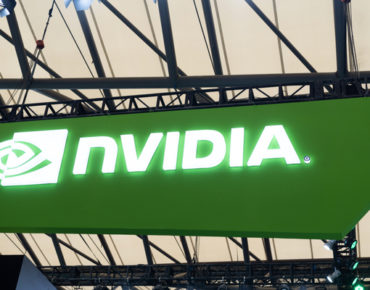Tune In to Watch Nvidia’s GTC21 Keynote with Jensen Huang — Recording Now Available

Image credit: Shutterstock
Update: the LIVE Nvidia keynote is over now, but you can watch the on-demand, recording below. And read our live coverage at EnterpriseAI.news.
Join EnterpriseAI this morning at 8:30 AM PT, Monday April 12 to see the Nvidia GTC21 keynote from Nvidia’s CEO, Jensen Huang, livestreamed in its entirety.
Hosted by EnterpriseAI.news, you can click to join the Huang keynote in the graphic below for our livestream to hear Nvidia’s expected news and announcements in the world of AI, GPUs, HPC, data centers, networking, graphics, autonomous vehicles and much more. GTC21 is being held virtually due to the continuing COVID-19 pandemic.
Shortly after the keynote, we’ll publish live coverage of the major Nvidia news of the day, so stay with EnterpriseAI.news to get all the details.
Speaking at the conference, which is free and continues through April 16, will be renowned AI pioneers Yoshua Bengio, Geoffrey Hinton and Yann LeCun. The trio won the 2018 Association for Computing Machinery (ACM) A.M. Turing Award, known as the Nobel Prize of computing, for breakthroughs that enabled the deep learning revolution which underpins the proliferation of AI technologies now being adopted around the world, from natural language processing to autonomous machines.
Other presenters at the event include Girish Bablani, a corporate vice president for Microsoft Azure; John Bowman, the director of data science for Walmart; Soumith Chintala, a research engineer at Facebook; Bill Dally, Nvidia chief scientist, Rene Haas, president of the IP products group at Arm; Ganesh Harinath, the vice president of engineering for 5G mobile edge computing and AI platforms at Verizon; and Daphne Koller, founder and CEO of Insitro and a co-founder of Coursera. Also speaking will be Jesse Levinson, the co-founder and CTO of Zoox; Kim Libreri, the CTO of Epic Games; Danielle Merfeld, the vice president and CTO of GE Renewable Energy; Abhay Parasnis, the CTO and chief product officer of Adobe Document Cloud; Krish Prasad, the senior vice president and general manager of the cloud platform business at VMware; Raquel Urtasun, a professor at the University of Toronto; and Hildegard Wortmann, a member of automaker Audi AG’s board of management.
Leaders from hundreds of other organizations are also expected to make presentations, including from Alibaba, Amazon, Bayer, Citibank, Google, Grubhub, Harvard Medical School, Hyundai Motor Group, IBM, LinkedIn, MIT, Morgan Stanley, Oak Ridge National Laboratory, Princeton University, Salesforce, SoftBank, Spotify, Stanford University and Volkswagen AG.
“GTC brings together a massive ecosystem of developers, researchers and corporate leaders who are using AI and accelerated computing to change the world,” Huang said in a statement. “We have our strongest program ever this year, highlighted by Yoshua Bengio, Geoffrey Hinton and Yann LeCun, among 1,300 sessions focused on every aspect of computing and networking. There is no better place to see the future and how you can help shape it.”
To attend the free, virtual Nvidia GTC21 event, you can register at www.nvidia.com/gtc. More than 100,000 developers, business leaders, creatives and other attendees are expected to listen in to the event, according to Nvidia.
Karl Freund, the principal analyst at Cambrian AI Research, said though he can’t divulge details about what will be unveiled at GTC21, there will be some interesting announcements.
“I will say that Nvidia does sort of a TikTok with GTC,” Freund added. “Since last year was [about] the A100 GPU, I suspect this year will be more about systems and datacenter technologies, along with the software advancements one has come to expect from Nvidia. Should be fun!”
Another analyst, Patrick Moorhead, the president and principal analyst with Moor Insights & Strategy, was also cagey about what he expects at the event.
“GTC is the place to go if you're interested in AI and I'm expecting new about new Nvidia capabilities and partners in the space,” said Moorhead. “I'm interested to see the role, if any, Nvidia's new networking capability plays, if any.”
Last year, at Nvidia’s GTC20 virtual conference in October, the company launched its newest Bluefield-2 Data Processing Unit (DPU) models and unveiled an all-new data-center-on-a-chip (DOCA) architecture designed to bring major enhancements for networking, storage and security. The company also announced its DGX SuperPOD modular AI infrastructure that lets customers deploy powerful AI supercomputers in much less time compared to traditional architectures, and an expansion of its Nvidia EGX edge computing platform to include its Ampere GPUs and its Bluefield-2 DPUs on a single PCIe card.
In September of 2020, Nvidia unveiled its blockbuster intentions to acquire chip IP vendor Arm for $40 billion, just months after closing its $7 billion acquisition of networking interconnect vendor Mellanox.
At SC20 in November 2020, Nvidia unveiled its A100 80GB GPU supercomputing chips, which doubled the memory of its earlier A100 data center GPUs. The more powerful version was designed to drive new levels of supercomputing-class performance in a wide variety of uses, from AI and ML research to engineering and more. The original A100 40GB GPU had arrived six months earlier.











